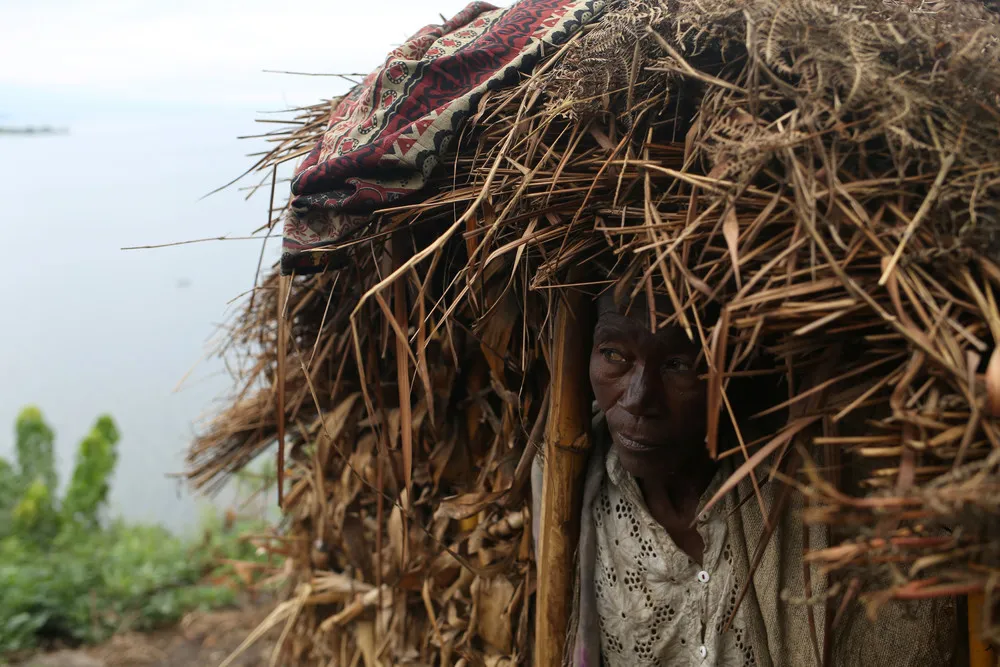|
Habimana, 45, stands in front of her house, at Kagorwa Pygmy camp on Idjwi island in the Democratic Republic of Congo, November 25, 2016. Habimana has lived alone with her four daughters since her husband died of malaria in 2014. On Idjwi, the largest island in Democratic Republic of Congo, a way of life is dying. The Bambuti, one of several Pygmy groups in Congo, are among central Africa's oldest indigenous peoples. For millennia, they have lived as hunter-gatherers, surviving off the forest's bounty of plants, birds and monkeys. Idjwi, in the middle of Lake Kivu, has been spared the ravages of wars in eastern Congo that have killed millions of people since 1996, mostly from hunger and disease. But for its indigenous inhabitants, the advance of another culture has proved nearly as devastating. The Bambutis, like Pygmy groups across central Africa, have been pushed out of a native land to which they could assert no legal title – in this case, to make way for an exploding ethnic Bantu population who now make up more than 95 percent of Idjwi's 280,000 inhabitants. Around 1980, the Bambuti say, local authorities and customary chiefs from the Bahavu, a Bantu people, expelled them from the forests and turned the land over to Bahavu to farm and build houses. The Bambuti lost their livelihood and, with few if any assets, no education, and no experience of how to support themselves in an alien environment, their society has withered. (Photo by Therese Di Campo/Reuters)
|

